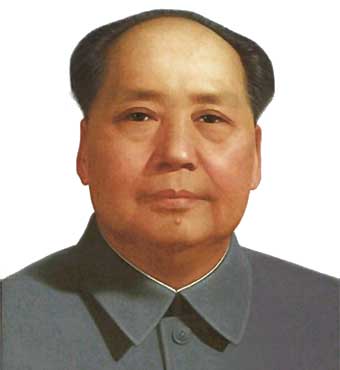We all know that corporations are people. The United States Supreme Court made that abundantly clear and the equally abundant political ads, courtesy of the Super-PACS are testament to the privilege of being a person.
Best of all, the beneficiaries of corporate largesse can wash their hands of all responsibility, as they must have an arm’s length relationship with their friend, the Super-PAC.
It’s so nice to be able to keep a straight face while totally disowning some egregious allegation or claim.
It may not seem as if its a privilege to be a viewer, but someone has to pay the price for someone else to have rights.
Apple is a person among persons. WIth a market capitilization is large as it is, it definitely warrants attention when it does anything.
Today it shook the ground enough to even get the attention of its co-founder, Steve Jobs.
The singular issue of the day was the Apple decision to offer a meaningful dividend and purchase back some $10 Billion in shares, which at its current rate of climb would be about 12 shares.
 The certainly not something that Mao Tse Tung or his successor Mao Zedong, would have done in his lifetime.
The certainly not something that Mao Tse Tung or his successor Mao Zedong, would have done in his lifetime.
In fact, the announced dividend, if paid in $1 bills that were laid end to end would circle the globe six times. If paid in Chinese Yuan it would also circle the globe sx times, but only because the size of their note is artificially pegged to our dollar’s dimensions.
The truly amazing thing is that if you followed that trail of singles around the globe again and again, you’d likely never run into a single Research in Motion Playbook owner.
That fantasized fact may be somehow related to Apple’s incredible recent success.
But how do you deal with such success, especially when the underlings get restless?
Just thrown a curveball, Apple has emerged unscathed as it turns out that the Chinese FOXConn controversy may have also been a fantasy. Apple has never been accustomed to being scrutinized or criticized.
In size, impact and imperiality, Apple is China.
When talk comes of a Chinese hard or soft landing the world economy quakes. When China needs oil, copper or rare earth minerals, the rest of the world literally pays a price. Their suppliers pay as price as well, mortgaging their humanity and resources for the immediate gift of money and jobs.
When Apple needs components they need them in great volume and effectively control the availability of those components to their competitors.
But that’s just the price of doing business When they abruptly change component suppliers they leave a spoiled landscape, making large swaths of Africa resemble West Virginia.
But that’s the price paid for the right to engage in competition. If not Apple, certainly someone else with a vision and 5 year plan.
What China has learned is that prosperity pushes the longing for personal rights, freedom and democracy off of the radar screen of its own citizens.
That makes it a win-win situation.
How does China keep its more than one billion citizens happy and not clamoring for change at the top, or more importantly changing the system completely?
Certainly not by keeping them on the farm.
Money makes people happy, despite what the old adage says. You can buy happiness. And happiness diverts attention.
Tim Cook has learned just that, but he’s dealing with a citizenship that left the farm long, long ago. Simply seeing stock gains on the order of magnitudes in insufficient to keep the peons sated.
Increasingly there has been noise calling for change. The kind of change that Mao and Steve Jobs may very well have considered as sacrilegious and an affront to the vision.
Granted that Mao didn’t believe in ownership and consumerism, and sure, Steve Jobs made consumerism “cool,” but how would each have responded to the call for dividends, stock buybacks and splits?
No doubt that Mao would have wanted to see the dismantling of the corporate giant and return of its assets to the people, but that was so yesterday. Besides, Mao’s concept of returning assets to the people was purely for show.The government was the people and they lept everything.
Today, Chinese corporations are global and despite the appearance that they may be independent, nothing can be allowed to function without the central government’s tacit approval. Sure, the people may hold shares, but those shares can all become worthless at a whim of the government or at the discovery of its accounting practices.
Except that great wealth is tied up in those shares and companies and great wealth keeps the citizens pacified.
With noise coming for change in Apple’s stewardship of its cash hordes, the memory of Steve Jobs had to be discredited, just as Mao has become an anachronism that stands in the way of progress and coould no longer be counted upon to control the masses.
And so change came to both.
Today it came to Apple, fortunately, bypassing the need for a Cultural Revolution.
By really, did they bypass the cultutral revolution?
Although there are no bodies scattered over the landscape, the ideas that were at the core of the “business” of being Apple were discredited.
In China, the first sign of discredit to the memory of the founder were such things as refrigerators.
Dividends are Apple’s answer to refrigerators.
In China, a refrigerator was wonderful, but then you neede to have the means to put something into it, so the people were not satisfied for long.
Unlike giving a peasant the opportunity to buy their first refrigerator and then creating new demand for the items necessary to fill that refrigerator, dividends are the test of trickle down economic theory. Since the likelihood is that current owners of Apple shares are probably of greater means than those that could not avail themselves of ownership, it would be reasonable to expect that the dividends would work their way back into the economy.
I’m not of that belief. Of course, I also don’t own shares of Apple, having lost them to assignment more than $100 ago.
Without a doubt, the real winners are the federal and state governments.How can they lose with dividend increases?
In that regard, the dividend declaration is realism put into play in an effort to safeguard the enterprise.
After Tiananmen Square something had to give.
After the tragically early passing of Steve Jobs something also had to give. Sacrificing the culture in order to save it from itself.
Now, everyone is happy.
I was especially happy today, as long as I didn’t think about the shares of Apple that I could have been owning, had I not let my pessimistic self take root.
Part of the happiness derived from not only making lots of trades today, but still having anough cash on hand to pick up any bargains if they should materialize.
Even better, for some inexplicable reason, more than half of my shares in Mosaic and Chesapeake Energy were not assigned and for some shares, such as Kohls and Mosaic, I was ablt to repurchase assigned shares at lower prices.
As far as following through with this past Weekend Update game plan, I did purchase shares of the Barclays SHort Term VIX ETN, sold calls and sold puts. I probably should have waited another day to do that, as the VIX took another hit today, as did the ProShares UltraShort Silver. I did, however, buy back the VXX calls that were sold earlier in the morning to lock in profit.
Small consolation. Like getting a dividend and saying goodbye to growth.
Of course, despite my happiness that I was off the hook for the previous month’s puts on those shares, I couldn’t look the other way when I saw the premiums on the $10 April puts and will sweat it out again this month.
Szelhamos didn’t like Communism and fled Hungary during its revolution and never looked back.
I know with a great deal of certainty that he never owned, no ever used an Apple product, but he certainly knew who Mao Tse Tung was and who Steve Jobs was. I also have no doubt that he would have admired Steve Jobs for his creativity and entrepreneurial spirit in the same way that he had disdain for Mao.
Convergence theory, which was popular at one time would have predicted that Mao and Jobs would have gravitated toward one another, despite their differences. Actually, because of their differences.
As much of a capitalist as Steve Jobs was, it’s not likely that he would have cjhosen a redistribution of wealth to appease the masses, even if he was a believer in trickle down.
Sometimes a capitalist has to go Mao
Check out Recent PortfolioTransactions and
Transaction Performance
